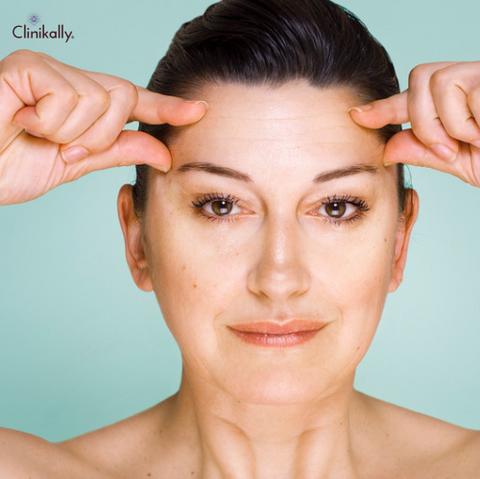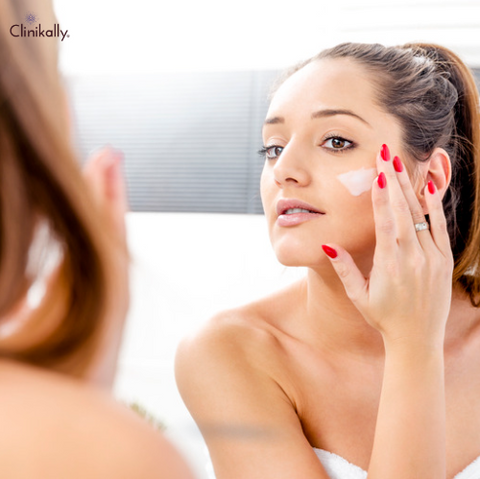Vitamin B5, also known as pantothenic acid, is a water-soluble vitamin that plays a crucial role in various bodily functions, including skin health. In this comprehensive guide, we will explore the science behind vitamin B5 and its benefits for the skin.
What is Vitamin B5 and How Does it Benefit the Skin?

Vitamin B5 is a member of the B-complex family of vitamins and is found in many foods, including meat, eggs, and whole grains. It is also available as a dietary supplement.
One of the primary benefits of vitamin B5 for the skin is its ability to promote hydration and moisturization. This is because vitamin B5 helps to strengthen the skin's barrier function, which prevents water loss and keeps the skin hydrated. In addition, vitamin B5 has anti-inflammatory properties that can help to soothe and calm irritated skin.
Pantothenic Acid: The Science Behind Vitamin B5
Pantothenic acid is essential for the synthesis of coenzyme A, which is involved in many metabolic processes in the body, including the breakdown of fats, carbohydrates, and proteins. Coenzyme A is also involved in producing energy and synthesizing important molecules like cholesterol and steroid hormones.
In the skin, pantothenic acid is involved in the synthesis of lipids, which are essential for the skin's barrier function. Lipids help to keep the skin hydrated and prevent water loss, which can lead to dry, itchy, and flaky skin.
How Vitamin B5 Boosts Skin Hydration and Moisturization
Vitamin B5 helps to boost skin hydration and moisturization by strengthening the skin's barrier function. The skin's barrier function is made up of a complex network of lipids and proteins that help to prevent water loss and keep the skin hydrated.
Vitamin B5 helps to support the production of these lipids, which in turn helps to improve the skin's barrier function. This can lead to smoother, softer, and more hydrated skin.
Vitamin B5 for Anti-Aging and Acne Prevention

In addition to its benefits for hydration and moisturization, vitamin B5 also has anti-aging and acne-preventing properties.
The Role of Vitamin B5 in Collagen Production and Skin Regeneration
Collagen is a protein that is essential for the skin's structure and elasticity. As we age, our natural collagen production declines, which can lead to wrinkles, sagging skin, and other signs of aging.
Vitamin B5 helps to support collagen production, which can help to improve the skin's elasticity and reduce the appearance of wrinkles and fine lines. In addition, vitamin B5 also helps to promote skin regeneration, which can help to improve the overall health and appearance of the skin.
Vitamin B5 for Acne: Reducing Inflammation and Supporting Wound Healing
Acne is a common skin condition that is characterized by pimples, blackheads, and whiteheads. Vitamin B5 can help to reduce inflammation and support wound healing, which can help to prevent and treat acne.
Vitamin B5 helps to reduce inflammation by inhibiting the production of pro-inflammatory cytokines, which are molecules that can contribute to the development of acne. In addition, vitamin B5 also helps to support wound healing, which can help to prevent acne scars and promote clearer healthier skin.
How Vitamin B5 Supports Skin Barrier Function

As mentioned earlier, vitamin B5 helps to support the skin's barrier function by promoting the production of lipids. This can help to maintain the skin's hydration levels and prevent water loss, which can lead to dry, irritated skin. In addition, a healthy skin barrier can also protect the skin from environmental stressors like pollution and UV radiation.
Vitamin B5 as an Antioxidant: Protecting Against Sun Damage and Environmental Stressors
Vitamin B5 also has antioxidant properties, which means that it can help to protect the skin against damage from free radicals. Free radicals are unstable molecules that can damage cells and contribute to aging and disease.
UV radiation from the sun is a major source of free radicals, and exposure to UV radiation can cause sunburn, premature aging, and even skin cancer. Vitamin B5 can help to protect the skin against UV damage by neutralizing free radicals and reducing oxidative stress.
Addressing Dermatitis and Eczema with Vitamin B5
Dermatitis and eczema are two common skin conditions that are characterized by inflammation, redness, and itching. Vitamin B5 can help to address these conditions by reducing inflammation and promoting wound healing.
In addition, vitamin B5 can also help to soothe and calm irritated skin, which can provide relief for symptoms like itching and burning.
Overall, vitamin B5 is an essential nutrient for maintaining healthy, hydrated, and youthful-looking skin. Whether you get your vitamin B5 from food sources or supplements, incorporating this nutrient into your skincare routine can help to improve the overall health and appearance of your skin.
Incorporating Vitamin B5 into Your Skincare Routine

Now that you know about the many benefits of vitamin B5 for the skin, you may be wondering how to incorporate it into your skincare routine. There are a variety of ways to use vitamin B5 in your skincare regimen, including topical application and supplements.
Topical Application of Vitamin B5: Serums, Moisturizers, and More
One of the most popular ways to use vitamin B5 for the skin is through topical application. There are a variety of skincare products that contain vitamin B5, including serums, moisturizers, and facial masks.
When choosing a vitamin B5 product, look for one that contains a high concentration of the nutrient and is formulated with other beneficial ingredients like hyaluronic acid and antioxidants.
Vitamin B5 Supplements and Food Sources
In addition to topical application, you can also incorporate vitamin B5 into your skincare routine through supplements and food sources.
Some of the best food sources of vitamin B5 include chicken, beef, salmon, avocado, and sweet potatoes. If you prefer to take a supplement, look for one that contains pantothenic acid or vitamin B5 and follow the recommended dosage instructions.
Safety Considerations When Using Vitamin B5 Cosmetics
While vitamin B5 is generally considered safe for topical use and consumption, there are some safety considerations to keep in mind.
First, be sure to patch-test any new skincare products containing vitamin B5 before applying them to your entire face. This can help to identify any potential allergic reactions or skin irritations.
Second, if you're taking a vitamin B5 supplement, be sure to talk to your healthcare provider first, especially if you're pregnant or breastfeeding.
Clinical Studies on Vitamin B5 and Skin Care
Numerous clinical studies have been conducted on the efficacy of vitamin B5 in improving skin health. Here are some key findings from the research:
The Efficacy of Vitamin B5 in Skincare Products
Several studies have found that vitamin B5 can be effective in improving skin hydration and barrier function. For example, a 2012 study found that a topical vitamin B5 formulation improved skin barrier function and hydration levels in volunteers with dry skin.
Other studies found that a moisturizer containing vitamin B5 was effective in reducing skin dryness and improving skin texture in individuals with mild to moderate eczema.
Final Thoughts on Vitamin B5 and Skin Health

In conclusion, Vitamin B5 is a powerful ingredient that can provide numerous benefits for the skin. From boosting hydration and moisturization to supporting anti-aging and acne prevention, Vitamin B5 has been shown to have a wide range of positive effects on the skin.
By incorporating Vitamin B5 into your skincare routine, you can take advantage of its many benefits. Topical application of Vitamin B5 in the form of serums, moisturizers, and other products can help to improve your skin's overall health and appearance.
It's also important to remember that Vitamin B5 can be obtained through food sources and supplements, so incorporating these into your diet can also have a positive impact on your skin health.
While Vitamin B5 is generally safe to use in cosmetics and skincare products, it's always important to exercise caution and follow recommended usage guidelines. As with any new skincare product, it's a good idea to do a patch test before applying it to your face or body.
Overall, Vitamin B5 is a valuable addition to any skincare routine, and its benefits for the skin are supported by a growing body of scientific research. So why not give it a try and see how it can improve the health and appearance of your skin?
















